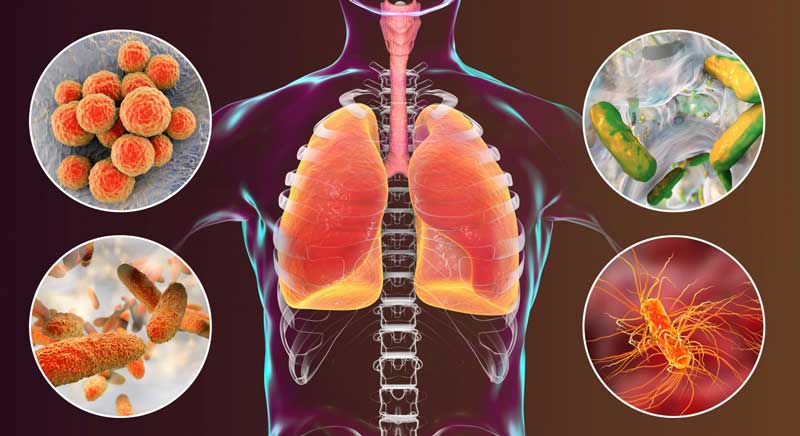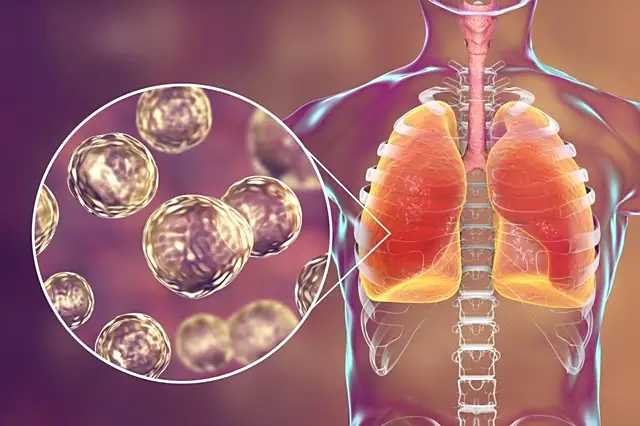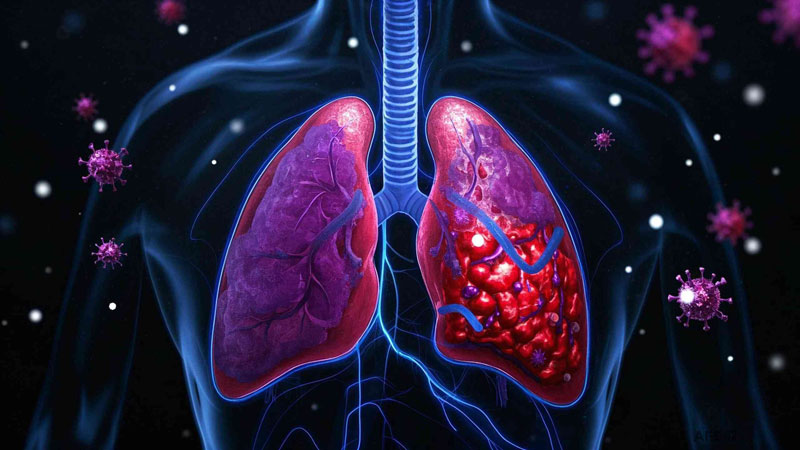"Will repeated pneumonia turn into lung cancer?"
This is a concern for many pneumonia patients. Although pneumonia itself is a benign disease, recurring episodes of certain specific types of pneumonia can increase the risk of lung cancer due to long-term inflammation.
The rumor that "it only takes three steps from pneumonia to lung cancer" is exaggerated, but it also serves as a warning: ignoring recurring pneumonia can lead to health risks.

The so-called "three steps" refer to the process of chronic inflammation caused by pneumonia: "mucosal damage - abnormal repair - cellular mutation."
- Pneumonia damages the lung mucosa, causing congestion and edema;
- Repeated inflammation causes abnormal mucosal proliferation during the repair process;
- Long-term abnormal proliferation can induce cellular genetic mutations, ultimately increasing the risk of cancer.
However, this process typically takes years or even decades, and not all pneumonia will develop into lung cancer, so there is no need to panic.

◆ However, if the following two types of pneumonia recur, special vigilance is warranted:
01. Obstructive pneumonia
This type of pneumonia is often caused by airway obstruction, such as tumor compression of the bronchus, which hinders sputum drainage and allows bacterial growth to cause infection. Patients experience recurrent fever, cough, and yellow sputum. Symptoms may temporarily improve with antibiotics, but relapse quickly after discontinuation, and the lesions are often located in a relatively fixed location.
Clinical data show that approximately 20% of patients with obstructive pneumonia are ultimately diagnosed with lung cancer. This is particularly true for middle-aged and elderly patients and long-term smokers. Chest CT or bronchoscopy is necessary to screen for airway tumors.
02. Interstitial pneumonia
Interstitial pneumonia is characterized by pulmonary fibrosis, and patients often experience progressive dyspnea and dry cough. Some types of interstitial pneumonia, such as idiopathic pulmonary fibrosis, can lead to repeated damage and repair of lung tissue if not resolved over a long period of time, increasing the risk of cell mutations. Studies have found that the incidence of lung cancer in patients with idiopathic pulmonary fibrosis is seven times higher than in the general population, and the disease progresses more rapidly. Regular lung imaging is necessary to monitor for lesions.
◆ Why does recurrent pneumonia increase the risk of lung cancer?
Inflammation releases a large number of inflammatory factors, stimulating cell proliferation. Furthermore, long-term antibiotic use can damage the lung microenvironment, weaken immunity, and create conditions for cancer cell growth. Furthermore, recurrent pneumonia can mask early symptoms of lung cancer, leading to delayed diagnosis.

◆ How to distinguish between common pneumonia and those that warrant attention?
Common pneumonia typically resolves within 2-3 weeks after standard treatment and rarely recurs in the same location. However, the two types of pneumonia mentioned above often present with "treatment-effective but recurrent" symptoms and are accompanied by systemic symptoms such as weight loss and fatigue.
It is recommended that patients with pneumonia be screened for lung cancer promptly if they experience the following:
- Recurrent pneumonia in the same location;
- Symptoms resolve after treatment, but imaging shows incomplete lesion resolution;
- Pneumonia accompanied by symptoms such as blood in sputum and chest pain.
People over 40 are particularly at high risk and are recommended to undergo a low-dose spiral CT scan annually.
Summary:
Pneumonia does not necessarily progress to lung cancer, but recurring cases of specific pneumonia warrant high vigilance. Promptly identifying the cause, providing standardized treatment, and regular follow-up examinations are essential to effectively reduce the risk of cancer.

%20--%3e%3c!DOCTYPE%20svg%20PUBLIC%20'-//W3C//DTD%20SVG%201.1//EN'%20'http://www.w3.org/Graphics/SVG/1.1/DTD/svg11.dtd'%3e%3csvg%20version='1.1'%20id='图层_1'%20xmlns='http://www.w3.org/2000/svg'%20xmlns:xlink='http://www.w3.org/1999/xlink'%20x='0px'%20y='0px'%20width='256px'%20height='256px'%20viewBox='0%200%20256%20256'%20enable-background='new%200%200%20256%20256'%20xml:space='preserve'%3e%3cpath%20fill='%23FFFFFF'%20d='M194.597,24.009h35.292l-77.094,88.082l90.697,119.881h-71.021l-55.607-72.668L53.229,232.01H17.92%20l82.469-94.227L13.349,24.009h72.813l50.286,66.45l58.148-66.469V24.009z%20M182.217,210.889h19.566L75.538,44.014H54.583%20L182.217,210.889z'/%3e%3c/svg%3e)




